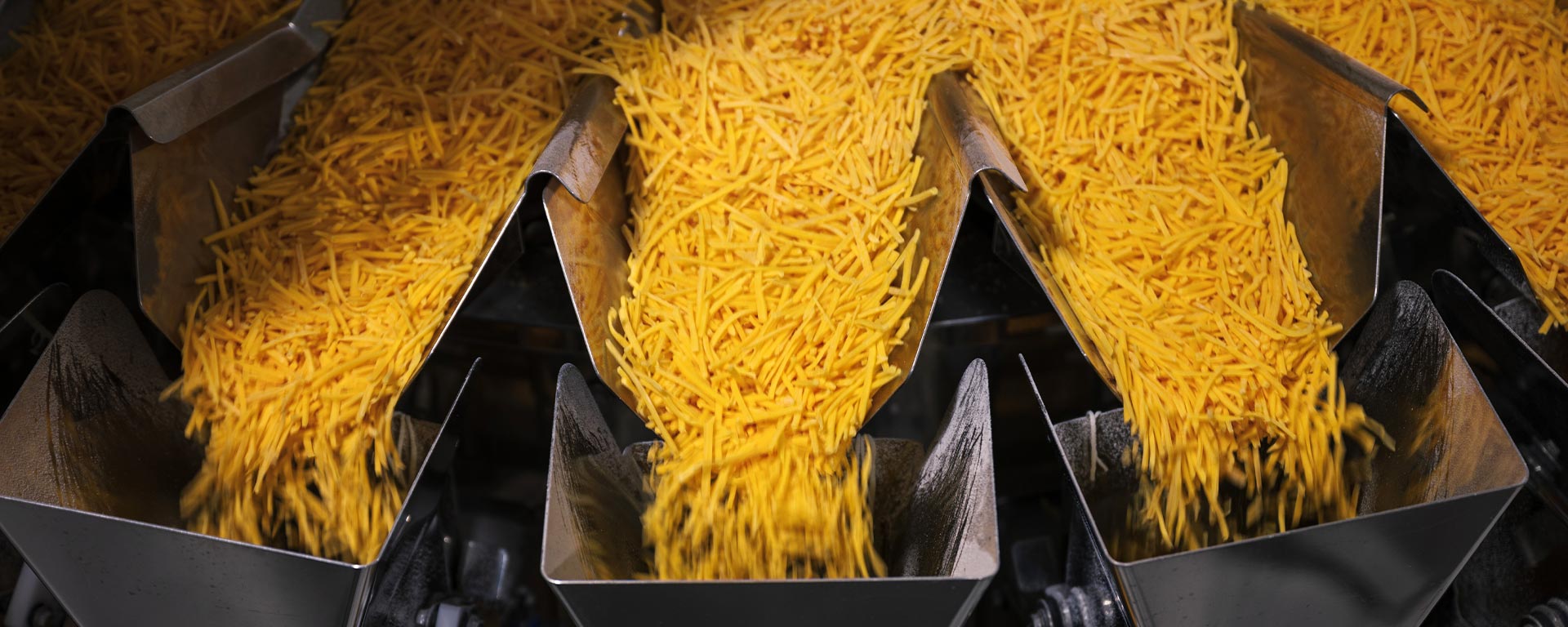
Food Safety and Quality
As a food packager and manufacturer, Great Lakes Cheese has an enormous responsibility to earn our customers’ trust and keep consumers safe.
Consistently High-Quality
We work tirelessly to process, package, and deliver the safest possible products with intention and care.
Responsible Sourcing
Purchase only high-quality, safe ingredients and reliable materials from approved suppliers with proven quality expectations and sustainability commitments.
Quality Assurance
Monitor along every step of the process to ensure the safety and quality of our products from our factories to your locations.
Labeling Compliance
We have the expertise to ensure your products comply with local, state, and federal regulations and accepted standards for non-misleading artwork. Our thorough product labeling reviews protect your brand’s unique reputation and needs.
Certifications
Earn and maintain certifications from Global Food Safety Initiatives programs, like Safe Quality Food (SQF).
Prevention
Develop and execute the necessary preventative control programs like Good Manufacturing Practices (GMP), Food Safety Plans, and Food Defense and Biosecurity programs.
Identity Controls
We specifically control regulated ingredients that must be labeled in the United States and all other countries we sell to.
Consumer Care FAQs
All products produced by Great Lakes Cheese are gluten-free, unless otherwise stated on the label to contain wheat.
Some products produced by Great Lakes Cheese are rBGH or rBST free, and labeling states as such. Please contact Great Lakes Cheese with product UPC for more product information by clicking here.
Microbial based enzymes are used in the production of most natural cheese products by Great Lakes Cheese. Lipase enzymes may be animal or microbial based and may not be suitable for a vegan or lacto-ovo vegetarian diet. Typical cheeses that use lipase enzymes are Provolone, Romano, Asiago, Fontina, Feta, and Blue Cheeses. Please contact Great Lakes Cheese and provide product UPC for more product information by clicking here.
At this time a federal definition for “genetically modified organisms” or “GMO” does not exist. Therefore, Great Lakes Cheese cannot confirm products are “GMO-Free”. All products produced by Great Lakes Cheese comply with USDA’s National Bioengineered Food Disclosure Standard and contain disclosure labeling if required.
Yes, products produced by Great Lakes Cheese that contain palm oil use palm oil that is certified by the Roundtable on Sustainable Palm Oil (RSPO).
Although most molds are harmless, to be safe, cut away a 1/2 inch of cheese around the visible mold.
Ideally, cheese is best if consumed within three to five days and kept in optimal storage conditions after opening.
Cheese should be stored in a refrigerator at temperatures of 35-45 degrees Fahrenheit. Cheese should be stored in an air-tight container, wrapped tightly with plastic film or in a closeable plastic bag to help protect the cheese from molding and/or to help slow down the molding process.
We don’t recommend freezing cheese, as it could affect the quality of the product. If you do choose to freeze, it’s recommended the cheese be thawed out in the refrigerator and used as soon as possible after thawing.
We recommend using our products prior to the best by date stamped on the package. Cheese that is opened prior to the best by date is best if used within 3-5 days of opening.
All natural cheeses start with a level of lactose, but as they age, those levels may dissipate. Please consult your dietician or family physician prior to consumption.
Great Lakes Cheese and the Great Lakes Cheese vendor network comply with FDA’s Pasteurized Milk Ordinance (PMO) and its regulations regarding milk receiving and antibiotics. Milk must be tested for the antibiotics as listed in the regulation, and if positive, the milk may not enter the milk supply.
Please refer to product labeling for product allergen information. All Great Lakes Cheese manufacturing facilities operate under strict allergen cross-contamination prevention procedures.
We do not recommend consuming expired product.
Please refer to product labeling for Kosher and Halal information. Great Lakes Cheese retail products are not Kosher or Halal certified.
If you have specific questions about product information please submit an inquiry to our Consumer Care team here.
If you have specific questions or concerns about product you’ve purchased, please submit an inquiry to our Consumer Care team here.